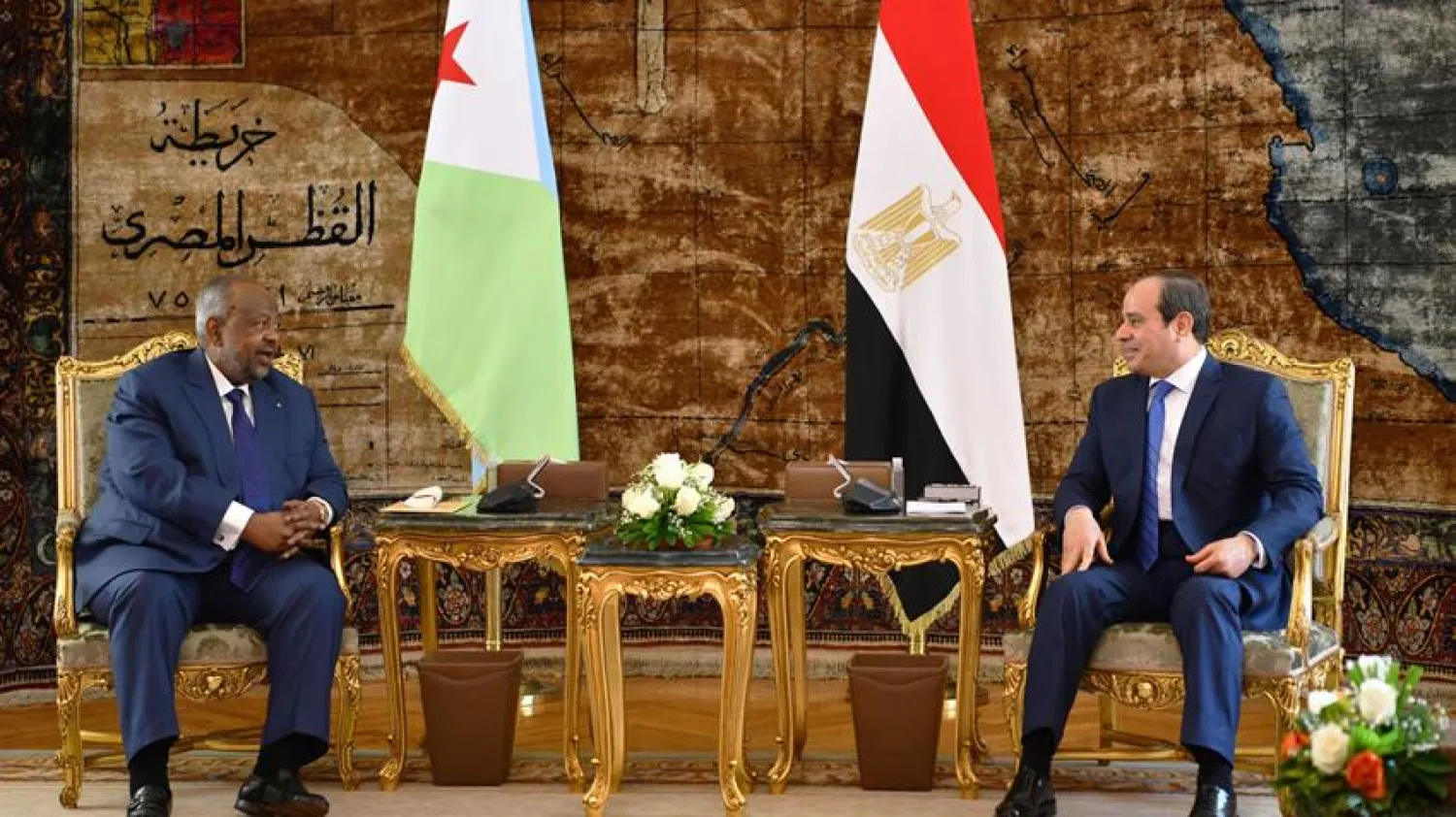President Abdel Fattah El-Sisi said Monday that Egypt was willing to reach a legally-binding agreement, within an appropriate timeframe, on the filling and operation of the Renaissance Dam, which Addis Ababa began constructing on the Blue Nile, sparking disputes with both Cairo and Khartoum.
Sisi received the President of Djibouti, Ismail Omar Guelleh, at the Federal Palace and discussed the regional situation in the Horn of Africa and the security of the Red Sea.
The two leaders also discussed the establishment of the Egyptian logistic zone in Djibouti.
Speaking at a joint press conference with Guelleh, Sisi welcomed the President, affirming that Egypt and Djibouti have long-standing strategic relations that unite the two countries across all levels.
Sisi reaffirmed the responsibility of the riparian countries to formulate all policies related to that vital waterway from a comprehensive perspective, taking into account the various developmental, economic and security aspects.
The President said the visit is a continuation of the ongoing communication and coordination at various bilateral and regional levels and a follow-up to the results of the consultations held during his visit to Djibouti in May last year.
The Egyptian leader described the talks with his counterpart as "open and transparent," reflecting the convergence of views on many bilateral and regional issues of common interest.
"We discussed all aspects of the ongoing cooperation between the two countries, notably at the economic, trade and investment levels, as well as means to further advance them in a manner that befits the distinguished political relations between our two countries."
The two sides agreed on the importance of joint action toward providing the necessary support to boost mutual investments, the contribution of Egyptian companies to economic development efforts in Djibouti, and efforts exerted to inaugurate a branch of "Bank Misr" there during the coming period.
"We stressed the need to strengthen our efforts to increase the volume of trade exchange between the two countries and establish an Egyptian logistic zone in Djibouti."
The talks also discussed efforts to foster closer cooperation in the fields of transport and ports connectivity and establish direct flights between Cairo and Djibouti.
"We also touched on efforts to combat extremist ideology and qualify preachers by disseminating the moderate values of Islam through revered religious institutions in the two countries, primarily Al Azhar Al-Sharif," said Sisi.
The talks also addressed the GERD developments, announced Sisi, underscoring Egypt's political will to reach a legally- binding agreement on the filling and operation of the Dam within an appropriate timeframe, which shall reinforce regional security and stability under the rules of international law and UN Security Council resolutions.
For his part, the President of Djibouti stressed that his visit to Egypt reflects the brotherly ties that unite the two countries and solid strategic relations at all levels.
Guelleh said that he agreed with Sisi on developing bilateral relations in various fields.
At the regional level, the President of Djibouti affirmed that the two sides stressed the importance of activating cooperation to establish regional security and stability, promote common interests, and achieve integration between Egypt and Djibouti.
After the talks, the two presidents witnessed the signing ceremony of several memoranda of understanding between the two countries concerning political consultation, energy and renewable resources, and the establishment of the Egyptian logistic zone in Djibouti.









